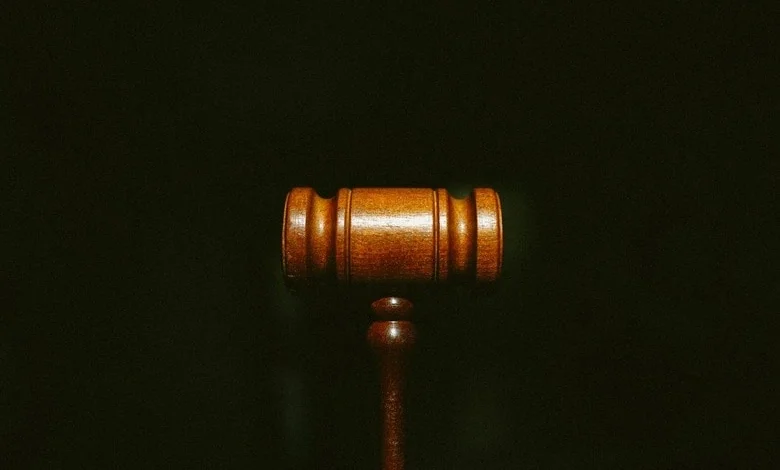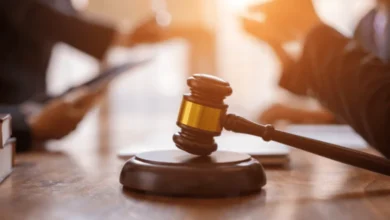Reasons to Seek Legal Assistance for Personal Injury Claims

Facing a personal injury can be a life-altering experience with significant implications for your health, finances, and personal well-being. Seeking legal assistance isn’t just a step toward compensation; it’s a move toward restoring your life’s balance and ensuring justice is served. A proficient personal injury attorney can guide you through the intricate web of legal proceedings, advocating for your rights and aiming to secure the settlement you rightfully deserve. With legal expertise on your side, you can navigate the complexities of personal injury law and focus on what truly matters – your recovery and peace of mind.
Choosing the Right Personal Injury Attorney
Selecting the right personal injury attorney is a decisive factor in the success of your claim. Look for an attorney with a proven track record of handling similar cases successfully and someone who has the necessary experience to navigate the complexities of your specific situation.
An initial consultation, which is often free, is a good opportunity to assess the attorney’s suitability. During this meeting, inquire about their experience, approach to handling cases, and communication style. This can provide insights into their potential compatibility with your expectations.
Lastly, consider the attorney’s fee structure. Many personal injury attorneys work on a contingency fee basis, which means they only get paid if you win your case. Understanding how the fees and potential costs will be handled is crucial before entering an attorney-client relationship. An experienced personal injury lawyer should be transparent about their fees and any potential costs that may arise during the legal process. It’s important to find an attorney you feel comfortable with and who is transparent about their approach to fees.
Understanding Personal Injury Law
Navigating the terrain of personal injury law requires a deep understanding of legal rights and responsibilities. At the core, personal injury law is designed to provide compensation for individuals who have been injured due to the negligence or intentional actions of another party. Grasping the basics of negligence, liability, and damages, allows one to understand the potential avenues for claims and the types of compensation that may be available.
Another critical aspect of personal injury law entails knowing the statute of limitations. This is the time frame within which you are allowed to file a lawsuit following an injury. Failing to act within this period can result in the loss of your right to seek legal remedy altogether. It is imperative for injury victims to be cognizant of these time restrictions to preserve their claims.

Finally, various kinds of personal injury cases exist, from auto accidents and slip-and-fall incidents to medical malpractice and product liability cases. Each type has its own set of legal precedents and complexities. An experienced attorney can help identify the right category for your case and craft a strategy tailored to the specific circumstances surrounding your claim.
The Role of Evidence in Your Case
Evidence is the cornerstone of any personal injury case. Collecting and presenting the right evidence is crucial in proving negligence and the extent of your injuries. This may include gathering photographs from the accident scene, medical records detailing the injuries, or witness statements that support your account of the event.
Furthermore, in the digital age, evidence can also contain electronic data, such as cellphone records or surveillance footage, which could be instrumental in substantiating your claim. Attorneys have the expertise to uncover and utilize such evidence effectively during negotiations or at trial.
Lastly, documentation of damages plays a pivotal role. Keeping a meticulous record of all expenses incurred as a result of the injury, such as medical bills, receipts for related purchases, or a diary of emotional trauma and pain, can prove invaluable. These documents help in quantifying the non-economic and economic damages for which you are seeking compensation.
Navigating the Insurance Landscape
Dealing with insurance companies is often a requisite step in the personal injury claims process. Understanding the terms of your insurance policy is vital, including the coverage limits and what sorts of incidents are covered. Familiarity with these details can help set realistic expectations for compensation from your insurance claim.
Moreover, insurance adjusters are adept at negotiating settlements and can employ tactics to minimize the payout. It is important to approach these interactions with caution and avoid accepting offers that may undervalue your claim. Legal representation can serve as a safeguard against such tactics and advocate for fair compensation.
In addition, there may be multiple insurance policies that apply, such as the at-fault party’s liability insurance or one’s own underinsured/uninsured motorist coverage. An attorney can help navigate this complex web of policies to identify all potential sources of compensation.
The Litigation Process Explained
If a fair settlement cannot be reached through negotiations, litigating your case in court may be necessary. The litigation process begins with the filing of a complaint, which outlines the legal arguments and the damages sought. Understanding the structure of a civil lawsuit and the possible stages, from pre-trial motions to trial and potential appeal, is crucial for a claimant.
During the discovery phase, both parties exchange information through depositions, interrogatories, and requests for documents. This is a critical stage where the strength of each side’s case is tested and additional evidence can be secured to support your claim.
Eventually, if the case goes to trial, it will be heard and decided by a judge or jury. Preparing for trial involves a significant amount of strategic planning and preparation, with the attorney taking the lead on formulating arguments, preparing witnesses, and overall case presentation.
Compensation You May Be Entitled To
Understanding what compensation you’re entitled to is important when filing a personal injury claim. Economic damages cover tangible losses like medical expenses, lost wages, and property damage. These can usually be calculated based on bills and other financial documents.
Non-economic damages, on the other hand, compensate for intangible losses such as pain and suffering, emotional distress, and loss of enjoyment of life. While these are more subjective, an experienced attorney can help establish their value based on the impact on your life and similar cases.
In certain situations, punitive damages may also be awarded. These are intended not as compensation for the victim but as punishment for the defendant’s particularly egregious conduct and as a deterrent for others.
Maintaining Your Mental and Physical Health During the Claim Process
The personal injury claim process can be lengthy and stressful, impacting your mental and physical recovery. Engaging in self-care routines, such as exercise, proper nutrition, and relaxation techniques, can help mitigate some of the stress involved.
Additionally, staying organized with your claim can help maintain a sense of control. Keeping detailed records and staying informed about the status of your case can reduce anxiety and help you make informed decisions alongside your legal team.
In conclusion, seeking legal assistance for a personal injury claim offers numerous benefits, including access to expertise and resources that can help maximize your chances of receiving fair compensation. Understanding the basics of personal injury law and insurance policies can position you for success in negotiations or trials.






